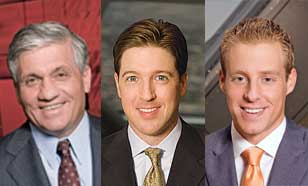Should you be using a focus group? That is the question every trial lawyer must answer before trying a catastrophic injury or high-stakes case. As trial lawyers, we live with our cases for years. We talk about them with our colleagues, our spouses and friends. Before the trial begins, most attorneys have unscientifically and informally analyzed and brainstormed the case. However, rather than relying on gut instinct or preconceived notions, the most objective and informative way to determine how a jury will decide a case and gain valuable insight into key issues in the case is to present the case to a group of representative jurors. The key to finding an appropriate focus group of jurors is to replicate the typical jury composition in your geographic area—by age, gender, race, occupation and other identifiable factors. When you replicate your expected jury pool, you begin to replicate likely jury results.
The Decision to Use a Focus Group
Before you commit to a focus group, you must consider whether it makes sense for your case and, if so, what type of focus group you need. Focus groups typically cost $30,000 to $50,000 depending upon a variety of factors. With these costs, focus groups only make sense in cases with substantial damages or cases that have other significant implications.
This content has been archived. It is available through our partners, LexisNexis® and Bloomberg Law.
To view this content, please continue to their sites.
Not a Lexis Subscriber?
Subscribe Now
Not a Bloomberg Law Subscriber?
Subscribe Now
LexisNexis® and Bloomberg Law are third party online distributors of the broad collection of current and archived versions of ALM's legal news publications. LexisNexis® and Bloomberg Law customers are able to access and use ALM's content, including content from the National Law Journal, The American Lawyer, Legaltech News, The New York Law Journal, and Corporate Counsel, as well as other sources of legal information.
For questions call 1-877-256-2472 or contact us at [email protected]



